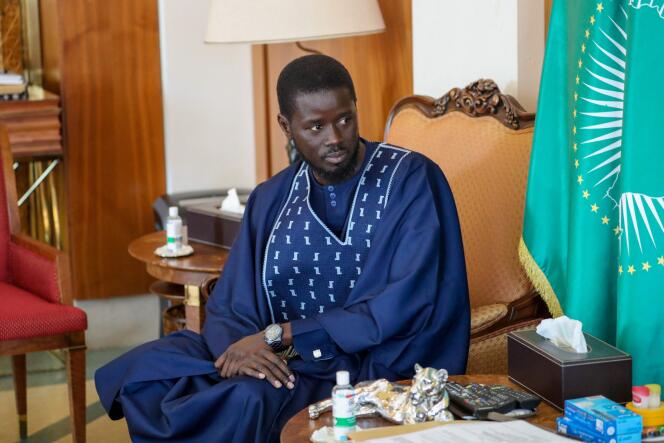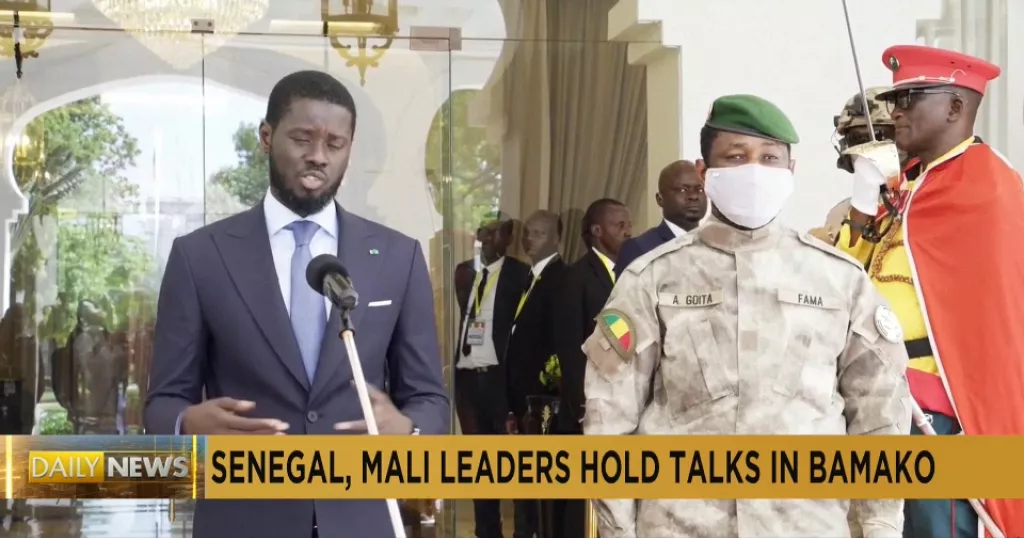BAMAKO, Mali – Senegalese Prime Minister Ousmane Sonko made his first official visit to Mali since his political party assumed power in the March 2024 presidential elections. Sonko’s visit is part of a broader diplomatic initiative led by Senegal to persuade Mali, now under military rule, to rejoin the Economic Community of West African States (ECOWAS), a 15-nation regional bloc established in 1975.

Mali, alongside Niger and Burkina Faso, has distanced itself from ECOWAS after military coups fractured its relations with neighboring West African nations. The withdrawal marks a significant shift in the bloc’s nearly 50-year history, as it is the first time member countries have exited in such a manner.
During his visit, Sonko met with Colonel Assimi Goita, the interim president of Mali, emphasizing the need for West African nations to reconcile their differences and work together to restore regional stability. “A Malian empire that stretched from here to Senegal, Ghana and everywhere in between,” Sonko said, highlighting the historical connections that bind the region.
The military juntas in Mali, Niger, and Burkina Faso have criticized ECOWAS for imposing sanctions and pressuring them to return to civilian rule. In January, the juntas accused ECOWAS of imposing “illegitimate, inhumane and irresponsible” sanctions, arguing that the bloc’s actions disregarded the sovereignty of their nations and the right of their people “to take their destiny into their own hands.”

ECOWAS has been at the forefront of efforts to restore civilian governance in the coup-affected countries, applying sanctions and rejecting extended transitional timetables proposed by the military regimes. Despite these efforts, the situation remains tense, with the juntas forming an alternative union known as The Alliance of Sahel States.
Sonko’s visit to Mali represents a critical diplomatic effort to bridge the widening gap between ECOWAS and its former members. Senegal’s President Bassirou Diomaye Faye, who visited Mali in May, has also been active in these efforts, tasked with the monumental challenge of reuniting the weakened regional bloc.
As West Africa grapples with ongoing security threats and political instability, the success of these diplomatic initiatives could play a pivotal role in shaping the future of regional cooperation and stability.



